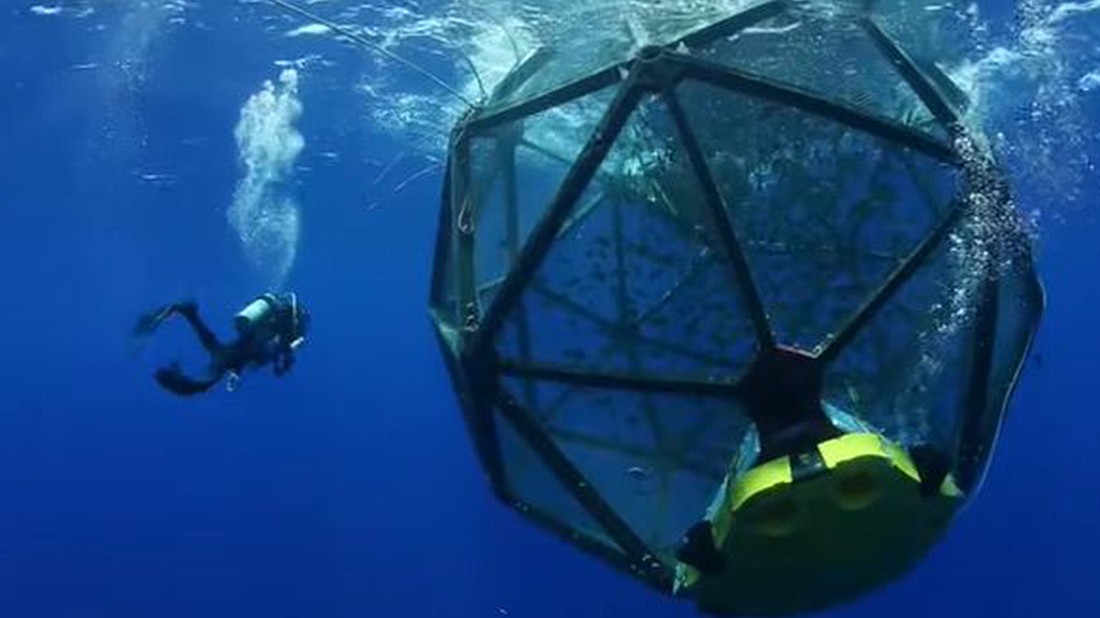- May 24, 2025
-
-
Loading

Loading

More than a year into the process, environmental regulators are being asked to revisit a permit issued for an offshore fish farm in the Gulf of Mexico.
In response to actions under the Biden Administration, the federal Environmental Appeals Board has asked the Environmental Protection Agency to provide a report on the permit it issued last year.
The farm, which would be operated by Hawaii-based company Ocean Era, would host 20,000 almaco jack in a pen suspended 45 miles offshore in the Gulf. It would be the first finfish project in the Gulf and the first in federal waters near the contiguous 48 states.
It would produce a maximum annual harvest of 88,000 pounds and if approved, Mote Marine Lab & Aquarium would supply Ocean Era with fingerling almaco jack raised at its research park.
Ocean Era needs a water-discharge permit from the EPA and a construction permit from the U.S. Army Corps of Engineers. The EPA held a hearing in January 2020 and approved a permit in October 2020, but the Army Corps has yet to do so.
The Biden Administration issued an executive order directing federal agencies to review actions taken during the past four years and consider suspending, revising or rescinding them, the Appeals Board order noted.
The order states that arguments raised against the farm present issues of national significance concerning the application of several federal laws, including the Clean Water Act, the National Environmental Policy Act and the Endangered Species Act.
Speaking to the Siesta Key Condominium Council, Siesta resident Neal Schleifer, who has opposed the project since the beginning, said the review offers a renewed hope.
“That should work in favor, we hope, for the people who oppose the fish farm,” Schleifer said.
During their public hearing periods, the Army Corps received more than 1,000 comments and the EPA received more than 9,000, with the majority in opposition to the project.
Throughout the hearing process, many residents and business owners expressed concern that the pen would exacerbate the problems the Gulf ecosystem has experienced, such as red tide and the Deepwater Horizon oil spill. Others worry the farm will pave a trail for similar farms in the future.
“Fish eat and fish produce waste, and that waste goes directly into the waterways,” Friends of the Earth member Hallie Templeton said during one hearing. “There’s excess feed that can go into the waterway. There’s pharmaceutical residues and other toxins going into the Gulf and this is a big red flag.”
As part of the EPA’s permit requirements, Ocean Era would have to monitor several factors, such as medicinal products used on the almaco jack and discharges of pollutants including chlorophyll, phosphorus, copper, sulfide and nitrogen.
Project Manager and Permit Coordinator Dennis Peters said Ocean Era selected the Sarasota site out of about 18 sites because it has the appropriate water, depth, substrate and temperature regimes to keep the project clean. It also is away from sensitive reef habitats and endangered species, he said.
The EPA must now file a status report which will allow the Appeals Board to review the permit in light of the Biden executive order. The status report must be filed no later than March 31 and the board will then decide whether to proceed with deliberations, including setting a date for an oral argument.
Should the EPA permit stand, Ocean Era would still need a permit from the Army Corps.